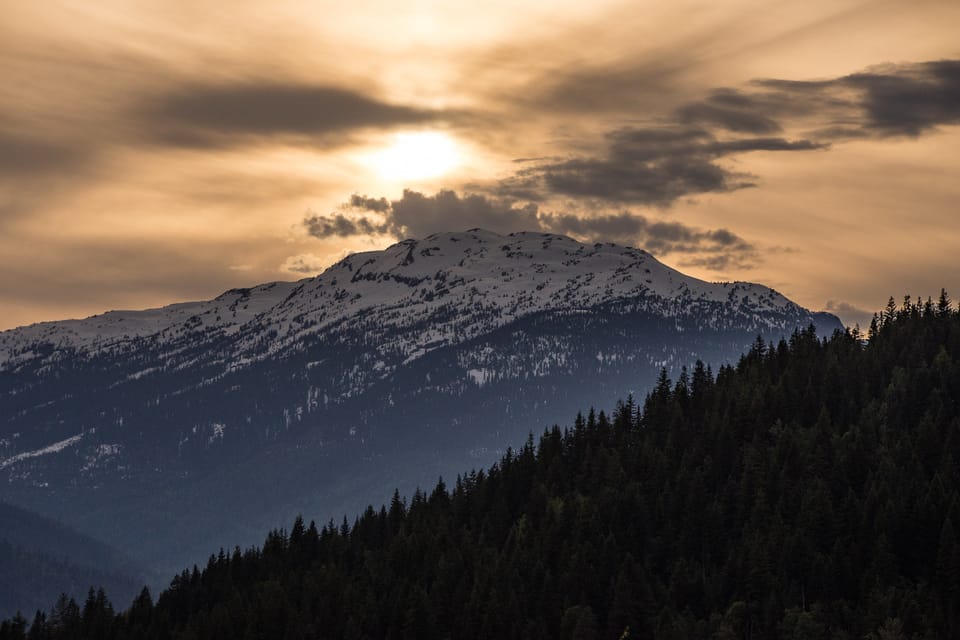EcoWest News, July 26, 2022

Welcome to EcoWest News, a weekly round-up of news and resources that you can put to use in addressing environmental issues and protecting the wild in your community.
“Human health, the health of the land, food, energy, climate change, biodiversity collapse — all of those factor into the debate around what to do with agriculture … The sooner we get to the table and start talking about it … the better" [The Narwahl]
Across the West
The City of Vancouver has voted to allocate funds towards a future class action lawsuit by local governments against global oil and gas companies over climate denial and delay. [Sue Big Oil, The Tyee]
The Crowsnest Pass community is divided: return to coal or develop tourism and retirement opportunities? [The Globe and Mail]
The City of Winnipeg is replacing trees destroyed during a botched house move. “When you take out mature trees (from boulevards) … you can’t necessarily expect new saplings to grow back, to survive in that rough condition and so that’s why the loss of mature trees is a double tragedy.” [Winnipeg Free Press]
Farmland
Saskatchewan’s farmland is caught between profit and habitat. Land ownership concentration and big money are forcing farmers to clear their lands in order to keep up … If maximizing profits off the sale of the land is the main goal, natural habitat stands in the way.” [The Narwahl]
The same thing is happening in Alberta where investors are buying up farmland and driving up prices. “It is more difficult to care for the land … because farmers are focused on growing something that will have an immediate return”. [St. Albert Today]
Wetlands
Wetlands, even small ones, built next to farmlands can dramatically reduce the amount of excess nutrients reaching aquatic environments. [Soil Science Society of America]
Spring flooding increases the risk of algae blooms on lakes such as Lake Winnipeg. There is a solution: “We can store water on the land. We can make sure we don’t lose any more wetlands – and we can work on restoring wetlands.” [Lake Winnipeg Foundation]
Caribou
There’s still time to protect northern mountain caribou in BC. The proposed Kaska Dena protected area would “protect a significant portion of seven northern mountain caribou ranges, and in some cases the whole range, from resource extraction or other major disturbances. [The Narwhal]
Lichen is being transplanted to help restore winter caribou habitat. [Alaska Highway News]
Jasper National Park needs to take drastic action, including matchmaking and stud books, to protect its dwindling caribou herds. But breeding isn’t enough. The yearlings and habitat must also be protected. [CBC]
Urban Wildlife
“The recent explosion of wildlife in American cities [is] one of the greatest ecological success stories since the dawn of conservation,” says Peter Alagona, author of The Accidental Ecosystem. [The Guardian]
The City of Los Angeles’ proposed wildlife district would place limits on urban development and homeowners would be expected to make their property more wildlife friendly in terms of lighting, trash containers, fencing, setbacks, and buffer zones. [Los Angeles Daily News]
From industrial wasteland to wildlife habitat and park – Chicago’s Wild Mile is reinventing the urban river and could serve as a model for other communities. [Fast Company]
Nature’s Wonders
Bats use ultrasonic pulses to detect moths, but not all moths are defenceless. Some emit ultrasonic signals of their own to startle bats and chase them away. [Florida Museum]
Birdsong – is it voice or instrument, music or communication? Or does it lie halfway in between in the field of poetry? [JSTOR Daily]
Hoping to spot wildlife while travelling in Alberta? Pay attention to the geology as the distribution of plants and animals is closely tied to the landscapes in which they live. [Nature Alberta]
Photo credit: https://www.flickr.com/photos/apmckinlay/35081423995/
EcoFriendly West informs and encourages initiatives that support Western Canada’s natural environment. Like us on Facebook, follow us on Twitter, or subscribe by email.

Member discussion